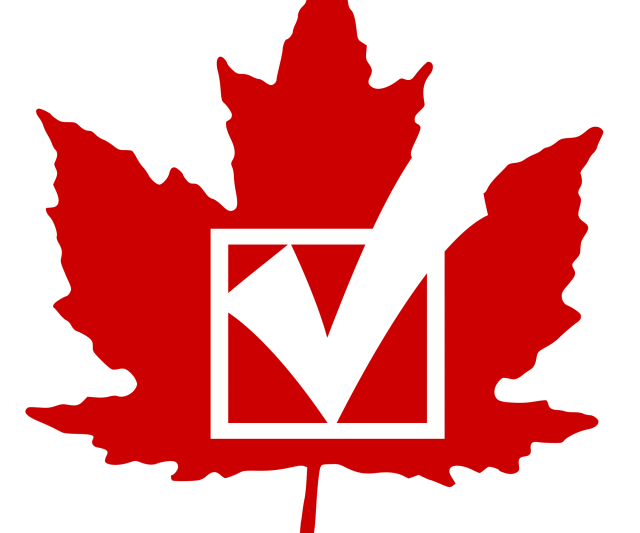Online Voting Standards – The Future is Friendly
This article provides a research backed roadmap for developing comprehensive and secure online voting standards and framework for Canada and in particular Ontario.

Online voting is a small but dynamic, rapidly growing component of the global election market driven in large part by the Covid pandemic and the need to keep voters safe, as well as governments’ desire for increased access, cost reductions and efficiencies offered by online or e-voting. Like many new and evolving technologies universal standards and guidelines are lagging. In a world beset by cyber security issues, multi-jurisdictional voting laws and the challenges of developing secure and reliable online voting technologies and platforms - “What could possibly go wrong”?
Canadian Voting Standards on The Horizon
There is an increasing chorus of industry participants, particularly in Canada and Ontario, suggesting now is the time for e-voting standards to guide the industry, protect municipalities, voter privacy, politicians in the running and ensure public trust and confidence in the online voting process. The questions are what and how can they work in Canada? And what can help Ontario’s 444 diverse municipalities going forward, the province most engaged in online voting?
Academia and The Corporate World Come Together
Neuvote’s CEO Matthew Heumann, was recently fortunate to have participated in a Webcast sponsored by the Association of Municipal Managers, Clerks and Treasurers of Ontario (AMCTO), which profiled research designed to identify what is required for a model and standards to safeguard the use of online voting in Canada – standards that in future, the The CIO Strategy Council will develop.
The Webcast entitled “Making the Case for Online Voting Standards” featured the research results of three key academics with significant expertise in this area: Dr. Nicole Goodman, Associate Professor, Political Science, Brock University; Dr. Alex Essex, Associate Professor, Software Engineering, University of Western Ontario; Adam Churchard, PhD Candidate, Department of Politics, York University.
Matthew opined, that Neuvote, not only as one of the supporters of the research grant but also as leading industry participant, was "very encouraged by the results which strongly align with our view on the nature and strength of the technical standards that are needed and that are currently built into our End-to-End Verified Voting Platform".
The Industry Speaks
The researchers conducted 45 interviews with a broad cross section of Canadian and International industry participants and experts, including Academics, Civil Servants, Engineers, E-Voting Vendors and Lawyers to garner feedback on what is working now, industry vulnerabilities and what a regulatory framework would look like. In addition, a review of existing regulatory frameworks and court cases was undertaken.
And the Survey Says…..
There was broad consensus of the need for Online Voting Standards. Specifically, operational guidelines that are voluntary but mandatory technical standards that are stringent enough to ensure security while allowing voting technology to advance.
The study participants identified the top four technical standards required: Security, Auditing, Ballot Secrecy and Accessibility. Other standards included Reliability, Voter Authentication and Verifiability.
Commented Matthew: “Those technical standard characteristics proposed are music to our ears at Neuvote. We have the ONLY mobile voting system backed up with paper ballots, real time visual confirmation authenticating voters and their votes cast and the security of Microsoft’s ElectionGuard, which taken together, ensure total security (end-to-end verifiability), auditability, ballot secrecy and increased accessibility – very much in line with the results of the study.”
What’s Next?
There were a number of key challenges identified in building a standards framework, including Stakeholder Buy-in, Who will Administer and Technical Complexities, but the researchers concluded we have a lot of knowledge and experience in Ontario to build on, for the province, as well as for the rest of the country.
In Ontario, the need is for a multi-jurisdictional approach to regulating cyber elections through progressive online voting standards and guidelines. One that covers a wide range of technologies (including tabulators), developed with clear principles and in close consultation with municipalities and other stakeholders. The bottom line: Any standards framework developed from this research “must reflect reality”.
At the conclusion of the presentation, the researchers invited all industry participants – municipalities, vendors, etc. - to join the CIO Strategy Council standards process that will build on this research to develop meaningful online voting standards. The promise: not much time is required as this process moves forward. For those who want to step up, the contact is: Matthew MacNeil, Director Standards and Technology, CIO Strategy Council, matthew.macneil@ciostrategycouncil.com
We’re Ready!
Matthew said at the conclusion of the Webcast “We are strategically well positioned and eager to participate further in the development of meaningful online voting standards and to benefit from the clear research focus on security, accessibility and auditability of the pending framework and standards”.

